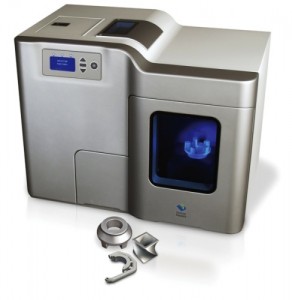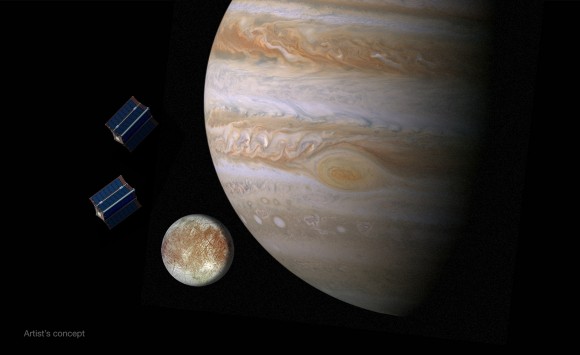Do you think we will ever inhabit other planets?
Re: Do you think we will ever inhabit other planets?
And you know what -- you same folks are the ones that said tar sands would never work out. You said EV's would never work out.
And you said shale would never work out.
A lot of you said the "EROEI" was all upside down. That turned out to not be the case.
And I'm as doomer as the next guy, but one thing that always did stick in the back of my mind is history -- every time people said there was a limit, right after that there was some revolutionary new thing and then more exponential growth.
I've got an antique newspaper from the 1920s I got a yard sale. It actually has an article about "the oil running out." This was before anyone imagined shipping overseas. And certainly offshore rigs, or even just drilling deeper than what they could in the '20s.
Historically, NOTHING stops tech progress except for collapse of civilization. Historically, that tends to be: war, plague, and aging empires that get bloated and it's a sociological / system collapse.
And you said shale would never work out.
A lot of you said the "EROEI" was all upside down. That turned out to not be the case.
And I'm as doomer as the next guy, but one thing that always did stick in the back of my mind is history -- every time people said there was a limit, right after that there was some revolutionary new thing and then more exponential growth.
I've got an antique newspaper from the 1920s I got a yard sale. It actually has an article about "the oil running out." This was before anyone imagined shipping overseas. And certainly offshore rigs, or even just drilling deeper than what they could in the '20s.
Historically, NOTHING stops tech progress except for collapse of civilization. Historically, that tends to be: war, plague, and aging empires that get bloated and it's a sociological / system collapse.
-

Sixstrings - Fusion

- Posts: 15160
- Joined: Tue 08 Jul 2008, 03:00:00
Re: Do you think we will ever inhabit other planets?
Keith_McClary wrote:whitehouse.gov has a plan:
Bootstrapping a Solar System Civilization
October 14, 2014
Nice link. Hm, well, he's one of those "scientists" right, why listen to him? That's just "9 years old dreamer" stuff.
“Right now, the mass we use in space all comes from the Earth. We need to break that paradigm so that the mass we use in space comes from space.”
NASA is already working on printable spacecraft, automated robotic construction using regolith, and self-replicating large structures. As a stepping stone to in-space manufacturing, NASA has sent the first-ever 3D printer to the International Space Station.
Jesus, am I psychic?
It's freaky I'll get my mind on something and THEN I see it somewhere.
I guess I'm not so ahead of my time, NASA is already working on "3d printing" and "printable spacecraft" etc.
I'm very impressed they're so forward thinking. You know, I've ragged on about Obama a lot and the NASA cuts and space shuttle gone but you know what -- they've been doing some great things, actually, using their money to push science forward and greater good.
They've supported spacex a lot. And that was brilliant. To get real progress, space has to go *commercial* and be profitable and a lot cheaper. What NASA is doing is basically *seeding* this, and in the long run it's going to bring a lot more return than what NASA itself, alone, could do with the huge government budgets.
If you make something *profitable* then genie is out of the bottle and it's gonig to go exponential.
Back to the article:
One day, astronauts may be able to print replacement parts on long-distance missions. And building upon the success of the Mars Curiosity rover, the next rover to Mars — currently dubbed Mars 2020 — will demonstrate In-Situ Resource Utilization on the Red Planet. It will convert the carbon dioxide available in Mars’ atmosphere to oxygen that could be used for fuel and air — all things that future humans on Mars could put to use.
There’s interest outside government as well, with various private companies that see a potential business in mining of asteroids and celestial objects for use in space.
Well that's everything I just said, so wow I'm impressed they're planning on doing it -- "printing parts as needed," etc.
And same thing as I just said, about supply chains:
Ultimately what we need to do is to evolve a complete supply chain in space, utilizing the energy and resources of space along the way. We are calling this approach “bootstrapping” because of the old saying that you have to pull yourself up by your own bootstraps. Industry in space can start small then pull itself up to more advanced levels through its own productivity, minimizing the cost of launching things from Earth in the meantime.
Okay guys, so you won't believe me and say I'm an idiot, well is a NASA scientist good enough for you?

-

Sixstrings - Fusion

- Posts: 15160
- Joined: Tue 08 Jul 2008, 03:00:00
Re: Do you think we will ever inhabit other planets?
Sixstrings wrote:Withnail wrote:Even with my basic engineering knowledge i'm aware that many components have to be machined not cast or 'printed' or they wouldnt have sufficient strength or precision otherwise.
What utter nonsense.
And even with my basic understanding of human history -- everyone that has ever said some technology would never get better, was wrong.
Remember these printers? They used to be state of the art:
Dot matrix printer.
Yes wonderful, but I explained why you can't 3d print a lot of components.
I don't see any answer to that here.
Sixstrings wrote:Well that's everything I just said, so wow I'm impressed they're planning on doing it -- "printing parts as needed," etc.
And same thing as I just said, about supply chains:Ultimately what we need to do is to evolve a complete supply chain in space, utilizing the energy and resources of space along the way. We are calling this approach “bootstrapping” because of the old saying that you have to pull yourself up by your own bootstraps. Industry in space can start small then pull itself up to more advanced levels through its own productivity, minimizing the cost of launching things from Earth in the meantime.
Okay guys, so you won't believe me and say I'm an idiot, well is a NASA scientist good enough for you?
A lot of NASA scientists are pie in the sky fantasists. And of course even if they're not they have to hype NASA.
Weren't they talking the same crap 40 years ago, orbital factories and so on?
- Withnail
- Heavy Crude

- Posts: 1306
- Joined: Sat 19 Jul 2014, 16:45:10
Re: Do you think we will ever inhabit other planets?
Withnail wrote:Yes wonderful, but I explained why you can't 3d print a lot of components.
I don't see any answer to that here.
I give up. The gosh darn Deputy Director for Technology and Innovation at the White House Office of Science and Technology Policy is saying the same thing I did and that's still not good enough for you.
I'll leave it at this -- 3d printers isn't fusion. It'll get done. And fusion will, too.
Do you even know about quantum computers? Good lord, if they can make quantum computers then anything is possible.
Do you know about quantum mechanics? How things can be in different places at the same time? All zeros can be ones, and all ones zeros, all at once?
And you think 3d printing is far out.

I'm not an engineer, and 3d printing has a long way to go, but I don't see how there's anything structurally unsound by how a part is fabricated. If a 3d printer could print titanium, then you're getting titanium parts its the same difference. How is that different than using a mold for the part.
Do I have it figured out? No. Do you? No. Whoever does figure it out will be the billionaire, not us.
 .
.Weren't they talking the same crap 40 years ago, orbital factories and so on?
The problem has been the cost to get to space. It hasn't made the benefits of zero g manufacturing worth the expense.
That'll change when SpaceX gets the reusable rockets done and it's dramatically cheaper to get back and forth.
Did you know that the Chinese moon rover was looking for helium 3? That's a very big atom that's good for fusion:
Is China’s Jade Rabbit a precursor to a helium-3 empire?
http://blog.chron.com/sciguy/2013/12/is-chinas-jade-rabbit-a-precursor-to-a-helium-3-empire/
You're making luddite arguments, withnail.
I remember a time when there was no "internet" to have arguments on. There weren't any cellphones either. You had to put a dime in this thing called a "pay phone."
-

Sixstrings - Fusion

- Posts: 15160
- Joined: Tue 08 Jul 2008, 03:00:00
Re: Do you think we will ever inhabit other planets?
Sixstrings wrote:Withnail wrote:Yes wonderful, but I explained why you can't 3d print a lot of components.
I don't see any answer to that here.
I give up. The gosh darn Deputy Director for Technology and Innovation at the White House Office of Science and Technology Policy is saying the same thing I did and that's still not good enough for you.
Of course it isn't good enough.
Only an easily cowed simpleton would accept an argument from authority.
Sixstrings wrote:
I'm not an engineer, and 3d printing has a long way to go, but I don't see how there's anything structurally unsound by how a part is fabricated. If a 3d printer could print titanium, then you're getting titanium parts its the same difference. How is that different than using a mold for the part.
What i specifically said was you can't mould a lot of parts. you have to machine them. do you even know what that means?
- Withnail
- Heavy Crude

- Posts: 1306
- Joined: Sat 19 Jul 2014, 16:45:10
Re: Do you think we will ever inhabit other planets?
Alright, well back to the thread topic.
Regarding warp travel -- faster than light -- even I think that's far fetched, and I didn't realize this but apparently NASA is working on it and a scientist has a developed a theory and concept and NASA and DARPA and are throwing a little money at it. Warp travel would get a ship to Alpha Centauri in two weeks.



You know, it was just in the 1980s and early 90s that quantum computers were something not even science fiction had ever imagined. Quantum is insane -- things are true and false, they are in all places at once, and in computing it means that all possible solutions can be seen at the same time, instantly.
And it's not fantasy, it's real, and quantum computers are really good at certain things like encryption and breaking encryption. And we're just at the dawn of that computing age, the quantum age -- think about that for a second. Todays quantum computers are like those first computers back in the 1950s with vacuum tubes that filled a whole building up. And now you have more power in your google glasses.
Getting off topic on computing, but my hunch says quantum mechanics are the key to a lot of things, including faster than light travel. I don't know anything about "quantum gravity" though, and how that works.
I admit I get a little foggy on these details, I'm not a physicist, but it's fascinating. For example, did you know that at the quantum level (what is it, quarks?) you can take the smallest parts of an atom and separate them and have one at one end of the universe and the other at the other end. And then if you do something to one of the quarks or whatever, the other one -- all that distance away -- responds. It's really astounding, it suggests a framework and all things being connected; a lot like buddhist thought.
Getting back to what's more possible in the nearer term, you know, we had the technology back in the 1960s and 1970s that could have got a little station up on Europa. Look at all the Apolla program accomplished. None of that tech existed before they set out to make it for the first time.
The Saturn V is still the largest rocket that was ever made.
That was fifty years ago. They didn't even have decent computers.
Even the space shuttle had crappy 1970s computers. A smartphone has more processing power than the shuttle did, lol right? Turns out you can conquer space with just vacuum tubes and switches and electrical and rocket plumbing.
So look at all we have now -- and 3d printers on the horizon, and new engines on the way. New concepts like inflatable modules.
Getting to Mars and Europa around Jupiter is still old school rocketry though -- you don't even need a Saturn V, you could use small rockets and assemble the vehicle in space.
The Falcon Heavy that spacex is working on will be a cheap delivery system to Mars, biggest rocket since the Saturn V. So NASA -- or private interests -- will be able to do more, with the smaller budgets it has now, and that's thanks to Elon Musk.
Anyhow, I really don't find Mars too interesting. Europa is where it's at -- it's got a liquid water ocean with more water than on all the Earth. It has geo energy, and geothermal vents.
(edit: correction about radiation, europa has a lot of radiation hitting it when it passes out of Jupiter's magnetotail. Radiation shielding could be used, or underwater habitats and the ice cap protects from radiation.)
You guys don't find that interesting? That there's a moon just a couple years travel away that has an ocean? And may very well be crawling with life? On earth, we know that -- where there is water and thermal vents and energy, there is life.
Regarding warp travel -- faster than light -- even I think that's far fetched, and I didn't realize this but apparently NASA is working on it and a scientist has a developed a theory and concept and NASA and DARPA and are throwing a little money at it. Warp travel would get a ship to Alpha Centauri in two weeks.



The IXS Enterprise is the name of a conceptual superluminal spacecraft designed by NASA scientist Dr. Harold White, revealed at SpaceVision 2013, designed for the goal of achieving warp travel. The conceptual spacecraft would be a modified version of the Alcubierre drive. Dr. White is currently running the White–Juday warp-field interferometer experiment in order to develop a proof of concept for Alcubierre-style warp travel, if possible.
http://en.wikipedia.org/wiki/IXS_Enterprise
The Alcubierre drive or Alcubierre metric (referring to metric tensor) is a speculative idea based on a solution of Einstein's field equations in general relativity as proposed by theoretical physicist Miguel Alcubierre, by which a spacecraft could achieve faster-than-light travel if a configurable energy-density field lower than that of vacuum (i.e. negative mass) could be created. Rather than exceeding the speed of light within its local frame of reference, a spacecraft would traverse distances by contracting space in front of it and expanding space behind it, resulting in effective faster-than-light travel.
Objects cannot accelerate to the speed of light within normal spacetime; instead, the Alcubierre drive shifts space around an object so that the object would arrive at its destination faster than light would in normal space.[1] Although the metric proposed by Alcubierre is mathematically valid in that it is consistent with the Einstein field equations, it may not be physically meaningful or indicate that such a drive could be constructed.
The proposed mechanism of the Alcubierre drive implies a negative energy density and therefore requires exotic matter, so if exotic matter with the correct properties does not exist then it could not be constructed. However, at the close of his original paper[2] Alcubierre argued (following an argument developed by physicists analyzing traversable wormholes[3][4]) that the Casimir vacuum between parallel plates could fulfill the negative-energy requirement for the Alcubierre drive.
Another possible issue is that although the Alcubierre metric is consistent with general relativity, general relativity does not incorporate quantum mechanics, and some physicists have presented arguments to suggest that a theory of quantum gravity, which incorporates both theories, would eliminate those solutions in general relativity that allow for backwards time travel (see the chronology protection conjecture), of which the Alcubierre drive is one.
http://en.wikipedia.org/wiki/Alcubierre_drive
You know, it was just in the 1980s and early 90s that quantum computers were something not even science fiction had ever imagined. Quantum is insane -- things are true and false, they are in all places at once, and in computing it means that all possible solutions can be seen at the same time, instantly.
And it's not fantasy, it's real, and quantum computers are really good at certain things like encryption and breaking encryption. And we're just at the dawn of that computing age, the quantum age -- think about that for a second. Todays quantum computers are like those first computers back in the 1950s with vacuum tubes that filled a whole building up. And now you have more power in your google glasses.
Getting off topic on computing, but my hunch says quantum mechanics are the key to a lot of things, including faster than light travel. I don't know anything about "quantum gravity" though, and how that works.
I admit I get a little foggy on these details, I'm not a physicist, but it's fascinating. For example, did you know that at the quantum level (what is it, quarks?) you can take the smallest parts of an atom and separate them and have one at one end of the universe and the other at the other end. And then if you do something to one of the quarks or whatever, the other one -- all that distance away -- responds. It's really astounding, it suggests a framework and all things being connected; a lot like buddhist thought.
Getting back to what's more possible in the nearer term, you know, we had the technology back in the 1960s and 1970s that could have got a little station up on Europa. Look at all the Apolla program accomplished. None of that tech existed before they set out to make it for the first time.
The Saturn V is still the largest rocket that was ever made.
That was fifty years ago. They didn't even have decent computers.
Even the space shuttle had crappy 1970s computers. A smartphone has more processing power than the shuttle did, lol right? Turns out you can conquer space with just vacuum tubes and switches and electrical and rocket plumbing.
So look at all we have now -- and 3d printers on the horizon, and new engines on the way. New concepts like inflatable modules.
Getting to Mars and Europa around Jupiter is still old school rocketry though -- you don't even need a Saturn V, you could use small rockets and assemble the vehicle in space.
The Falcon Heavy that spacex is working on will be a cheap delivery system to Mars, biggest rocket since the Saturn V. So NASA -- or private interests -- will be able to do more, with the smaller budgets it has now, and that's thanks to Elon Musk.
Anyhow, I really don't find Mars too interesting. Europa is where it's at -- it's got a liquid water ocean with more water than on all the Earth. It has geo energy, and geothermal vents.
(edit: correction about radiation, europa has a lot of radiation hitting it when it passes out of Jupiter's magnetotail. Radiation shielding could be used, or underwater habitats and the ice cap protects from radiation.)
You guys don't find that interesting? That there's a moon just a couple years travel away that has an ocean? And may very well be crawling with life? On earth, we know that -- where there is water and thermal vents and energy, there is life.
Last edited by Sixstrings on Fri 24 Oct 2014, 14:59:01, edited 2 times in total.
-

Sixstrings - Fusion

- Posts: 15160
- Joined: Tue 08 Jul 2008, 03:00:00
Re: Do you think we will ever inhabit other planets?
Problems with Europa colonization, that I can think of off the top of my head:
1) if the station is on the surface, then how do you know a water geyser isn't going to blow up right under you. Europa erupts water into space and then the hole freezes back after a while.
Perhaps this is a bit of a fixed situation and there are stable parts of the ice cap surface.
2) The ice cap could be around 25 miles thick. There are already plans for probes that could melt through that to get to the ocean underneath.
But for a colony, you'd need a stable transit tunnel that won't get all tore up by the ice. This is an engineering problem, and not impossible -- the chunnel linking UK and France used to be "impossible."
3) if you colonized Europa's ocean, then you've got the same challenge of making underwater colonies here. 3d printers really are the key. You've got to have a small number of machines that can fabricate any random part you need, on the spot.
4) Sustainable, closed system biospheres are a challenge. We've actually never even made that work on earth. Was only tried once though -- that sketchy "biodome" thing back in the 90s where they were supposedly growing their own food and it was a closed loop. Turns out they were going hungry and snuck food in.
Again, though, 3d printing is key -- it's what will allow a future colony to adapt and patch up problems and keep things working.
5) Jupiter is far away, comparatively, versus our moon and Mars. But it's in our solar system -- the closest solar system with planets is a hell of a lot farther and impossible with near future tech. Europa's advatnage, again, is the volume of water it has. But actually Mars has water too. NASA's orbiter has taken photos of ice on the surface and also evidence of recently flowing water.
Maybe Mars has enough water. Maybe not. Just depends on how much ice is on Mars and I'm not sure on that. The water issue -- and infinite water to drink and oxygen to split from the water -- makes a water moon like Europa the best.
Anyhow -- NASA has $2 billion pegged for a "Europa Clipper" mission. Let's hope it gets the funding. There's at least one congressman I've seen speaking that is excited about Europa, and he's convinced it has life.
If I recall, the proposed mission won't melt a probe through the ice but will pass through geysers and analyze the water getting shot out into space. If Europa is full of life, then there would be something in that geyser water.
Some recent news on the Europa Clipper mission, JPL picked 10 university projects to piggyback "cube satellites:"
1) if the station is on the surface, then how do you know a water geyser isn't going to blow up right under you. Europa erupts water into space and then the hole freezes back after a while.
Perhaps this is a bit of a fixed situation and there are stable parts of the ice cap surface.
2) The ice cap could be around 25 miles thick. There are already plans for probes that could melt through that to get to the ocean underneath.
But for a colony, you'd need a stable transit tunnel that won't get all tore up by the ice. This is an engineering problem, and not impossible -- the chunnel linking UK and France used to be "impossible."
3) if you colonized Europa's ocean, then you've got the same challenge of making underwater colonies here. 3d printers really are the key. You've got to have a small number of machines that can fabricate any random part you need, on the spot.
4) Sustainable, closed system biospheres are a challenge. We've actually never even made that work on earth. Was only tried once though -- that sketchy "biodome" thing back in the 90s where they were supposedly growing their own food and it was a closed loop. Turns out they were going hungry and snuck food in.
Again, though, 3d printing is key -- it's what will allow a future colony to adapt and patch up problems and keep things working.
5) Jupiter is far away, comparatively, versus our moon and Mars. But it's in our solar system -- the closest solar system with planets is a hell of a lot farther and impossible with near future tech. Europa's advatnage, again, is the volume of water it has. But actually Mars has water too. NASA's orbiter has taken photos of ice on the surface and also evidence of recently flowing water.
Maybe Mars has enough water. Maybe not. Just depends on how much ice is on Mars and I'm not sure on that. The water issue -- and infinite water to drink and oxygen to split from the water -- makes a water moon like Europa the best.
Anyhow -- NASA has $2 billion pegged for a "Europa Clipper" mission. Let's hope it gets the funding. There's at least one congressman I've seen speaking that is excited about Europa, and he's convinced it has life.
If I recall, the proposed mission won't melt a probe through the ice but will pass through geysers and analyze the water getting shot out into space. If Europa is full of life, then there would be something in that geyser water.
Some recent news on the Europa Clipper mission, JPL picked 10 university projects to piggyback "cube satellites:"
Tiny Satellites Could Hitchhike To Europa With Bigger NASA Mission Concept
http://www.universetoday.com/115274/tiny-satellites-could-hitchhike-to-europa-with-bigger-nasa-mission-concept/
-

Sixstrings - Fusion

- Posts: 15160
- Joined: Tue 08 Jul 2008, 03:00:00
Re: Do you think we will ever inhabit other planets?
60 years ago today, the first photo of the earth from space, 1946:
60 years later:
Imagine 60 years from now?
There was definitely a LONG time there since Apollo and there's been a lot of science done and great things like the rovers and probes, studying weather on other moons, and Hubble -- but we haven't done anything really big like Apollo.
But I think that'll change, once getting to space becomes *cheap* -- even private corps and interest groups could afford to fund payloads to LEO (other than satellites), or Mars. Falcon Heavy makes that possible. If they get the reusable rockets done, that will make it ten times more possible.
Development and exploration will go exponential once space becomes cheaper.
The first photo of Earth from space was taken on Oct. 24, 1946 (Credit: White Sands Missile Range/Applied Physics Laboratory)
http://www.universetoday.com/
60 years later:
Tuesday, Oct. 14, 2014: NASA astronaut Reid Wiseman (bottom) performed the first of three spacewalks for the Expedition 41 crew aboard the International Space Station on Oct. 7, 2014. European Space Agency astronaut Alexander Gerst (not pictured) also took part in the spacewalk. The spacewalkers toiled outside the space station's Quest airlock, relocating a failed cooling pump to external stowage. They also installed gear that provides back-up power to external robotics equipment. The spacewalk lasted 6 hours, 13 minutes.
http://www.space.com/34-image-day.html
Imagine 60 years from now?
There was definitely a LONG time there since Apollo and there's been a lot of science done and great things like the rovers and probes, studying weather on other moons, and Hubble -- but we haven't done anything really big like Apollo.
But I think that'll change, once getting to space becomes *cheap* -- even private corps and interest groups could afford to fund payloads to LEO (other than satellites), or Mars. Falcon Heavy makes that possible. If they get the reusable rockets done, that will make it ten times more possible.
Development and exploration will go exponential once space becomes cheaper.
Last edited by Sixstrings on Fri 24 Oct 2014, 15:28:09, edited 4 times in total.
-

Sixstrings - Fusion

- Posts: 15160
- Joined: Tue 08 Jul 2008, 03:00:00
Re: Do you think we will ever inhabit other planets?
Nice. When CA finally runs out of water, the people there will be able to mass migrate to Europe..eh, Europa.
- radon1
- Intermediate Crude

- Posts: 2054
- Joined: Thu 27 Jun 2013, 06:09:44
Re: Do you think we will ever inhabit other planets?
pstarr wrote:Six, 3-D printing is simple, elegant, inexpensive, fast, and imaginative for one simple reason: it prints plastic, not steel. It's a design and prototyping device. It will not manufacture solid metal replacement part for space mining, propulsion, habitat/containment. That requires incredible tensile and compressive strength at extreme temperatures and pressures, plus UV resistance in deep space without protective atmosphere of earth.
There's a lot of plastic on cars, these days.
Space stuff is actually often flimsy -- low weight.
I don't know pstarr, NASA seems to think it can use 3d printing to make "printable spacecraft."
There's also 3d printed houses:
A Giant 3D Printer Builds Ten Houses In One Day
http://www.huffingtonpost.com/2014/09/08/3d-printed-houses_n_5773408.html
That looks like concrete to me, not plastic.
This may as well be a Mars habitat:

If a printer can print a house on earth, then it could print out a Mars colony. Using the local soil for concrete.
Pstarr -- the stronger material will come, you're talking about what's possible now, you're not seeing what 3d printers will do in just five and ten years, then twenty, then thirty years from now.
What you're saying is like someone in 1970 bitching about how limited computers are, you know? I don't know why you think 3d printing tech will be stagnant and bigger things will remain "impossible."
-

Sixstrings - Fusion

- Posts: 15160
- Joined: Tue 08 Jul 2008, 03:00:00
Re: Do you think we will ever inhabit other planets?
I'm not an expert on this, but I did some googling and they've already got 3d metal pritners:

If 3d printers can print guns and stainless steel silverware and stainless steel for a car, and print concrete buildings, you can't tell me 3d printers will never print space parts.
This is a big deal, just the ability to even print a little screw or tool or anything up in space is massive -- that's something that didn't need brought up.
And if there's some wild Apollo 13 type problem in space, imagine having a 3d printer and how big that is? Engineers on the ground could work out replacement parts / a solution and *print it on the craft*. The Apollo 13 crew saved their ship with what they had on board -- socks and duct tabe and random bits cobbled together.
You can't tell me 3d printing isn't huge, how do you not see it.

Making guns in your garage: how 3D printers will revolutionise the manufacture of deadly weapons
http://blogs.telegraph.co.uk/technology/micwright/100007925/making-guns-in-your-garage-how-3d-printers-will-revolutionise-the-manufacture-of-deadly-weapons/
A Sub-$1,000 3D Printer for Metal
http://www.businessweek.com/articles/2013-11-13/a-sub-1-000-3d-printer-for-metal
If 3d printers can print guns and stainless steel silverware and stainless steel for a car, and print concrete buildings, you can't tell me 3d printers will never print space parts.
This is a big deal, just the ability to even print a little screw or tool or anything up in space is massive -- that's something that didn't need brought up.
And if there's some wild Apollo 13 type problem in space, imagine having a 3d printer and how big that is? Engineers on the ground could work out replacement parts / a solution and *print it on the craft*. The Apollo 13 crew saved their ship with what they had on board -- socks and duct tabe and random bits cobbled together.
You can't tell me 3d printing isn't huge, how do you not see it.

Last edited by Sixstrings on Fri 24 Oct 2014, 16:11:54, edited 1 time in total.
-

Sixstrings - Fusion

- Posts: 15160
- Joined: Tue 08 Jul 2008, 03:00:00
Re: Do you think we will ever inhabit other planets?
pstarr wrote:Give me a hint, Six. How will a 3D printer deposit molten steel?
Well I don't know man, but apparently they already have metal 3d pritners?

Model of a turbine showing the benefits of 3d printing in industry
http://en.wikipedia.org/wiki/3D_printing
-

Sixstrings - Fusion

- Posts: 15160
- Joined: Tue 08 Jul 2008, 03:00:00
Re: Do you think we will ever inhabit other planets?
pstarr wrote:From you link: " The machine prints metal clay, which is composed of metal flakes mixed with a binder and water." It is then melted in a kiln to remove the clay. Interesting.
Yeah, SEE, "they figured something out" and can print metal too.
That's why billionaires are billionaires and you and me aren't.

This 3d printing thing is the future, not just space, but manufacturing and building here on earth too. The printers will get better and better, you can bank on that, just how computing gets better and Moore's law.
-

Sixstrings - Fusion

- Posts: 15160
- Joined: Tue 08 Jul 2008, 03:00:00
Re: Do you think we will ever inhabit other planets?
I'm a big believer in 3-D printing. I've even seen some very early prototype printers using millions of layers of paper, and thousands of layers of plastics to mold pre-programmed objects back in the late 80s. They can, and will be used in space to manufacture the requisites for life off of this planet. However, my only questions about 3-D printers in space are #1, materials, and #2 gravity. 3-D printers utilize gravity, material layer upon material layer, to form a programmed object. In zero-G, i have no idea how that would work. I'm sure it can be done, but i don't yet understand how.
- Timo
Re: Do you think we will ever inhabit other planets?
radon1 wrote:Nice. When CA finally runs out of water, the people there will be able to mass migrate to Europe..eh, Europa.
Are you not interested in space?
Russia has a lot to be proud of. It's one of the few good things communism was able to really compete with us on.
Factoid about the Soviet space program: they practiced "iterative" design. They didn't mind so much if something blew up, if they learned from it. Whereas American engineers were perfectionist on the drawing board and wanting to work everything out before launch.
Neither is better than the other, and iterative design takes you places you can't get to otherwise.
The Soviets had a revolutionary engine on that N1 rocket. Many years after the cold war, some company paid the right people and got a hold of a warehouse full of those old engines. That design was then incorporated into American engines.
The engines were the first ever staged combustion cycle engines. The control system was primarily based on differential throttling of the engines, the outer ring for pitch and yaw, the inner six on gimballing mounts for roll. The Block A also included four grid fins, which were later used on Soviet air-to-air missile designs. In total, the Block A produced 43 meganewtons (9,700,000 lbf)[5] of thrust. This exceeded the 33.7 meganewtons (7,600,000 lbf) thrust of the Saturn V.
http://en.wikipedia.org/wiki/N1_(rocket)
Those engines were ahead of their time.
A comparison of the U.S. Saturn V rocket (left) with the Soviet N1/L3.
Russia does a lot in space still, but it's legacy tech -- Putin ought to compete with us on a space race, and all mankind can benefit, instead of more nukes and bombers and tanks.
That Olympics alone cost $40 billion. That could have funded twenty $2 billion a pop science missions to Jupiter and Saturn and everywhere. Look at everything Spacex has done with so little money -- why doesn't Putin seed money into science? And aerospace, other than military? Russia has so much starting tech and knowhow, why don't they do it?
Seriously, isn't that a better kind of national pride? Achievements in space? Versus annexation, and war? But I know the answer to my own question -- the military drives space and did from the start, with V2 rockets hitting London and the first suborbital ICBMs. Science has always had to piggyback on the military, and science #1 is focused on military applications and all these other benefits are incidental.
This internet we use right now came from DARPA -- it's meant so that communications can continue after nuclear war. A decentralized network.
But anyhow -- I will much rather see the billion plus Chinese get excited and nationalistic over beating us in space versus annexing some little Japanese island.
A good space race with China will benefit everyone. We'll go to Mars, then they'll go to Mars, and if they can catch up and start beating us then Americans will say well we can't have that and then we'd spend more on it, and science advances and nobody gets shot over it.
Without the Soviets to compete with, with a space race and nuclear war fears, there would never have been men on the moon. Going forward, and getting beyond just for national pride and climbing mountains just because they are there, and getting beyond military applications, it's commercialization that will really advance space development.
That one is the key. To make it profitable. Satellites are profitable now, next step is for stations to be profitable, and a moon base profitable, then Mars and beyond.
Last edited by Sixstrings on Fri 24 Oct 2014, 16:53:44, edited 6 times in total.
-

Sixstrings - Fusion

- Posts: 15160
- Joined: Tue 08 Jul 2008, 03:00:00
Re: Do you think we will ever inhabit other planets?
Why bother printing printing inanimate parts and stuff? Soon we will reproduce by printing humans.
Disclaimer: I hold a position in ONVO.
Disclaimer: I hold a position in ONVO.
-

dinopello - Light Sweet Crude

- Posts: 6088
- Joined: Fri 13 May 2005, 03:00:00
- Location: The Urban Village
Re: Do you think we will ever inhabit other planets?
dinopello wrote:Why bother printing printing inanimate parts and stuff? Soon we will reproduce by printing humans.
Disclaimer: I hold a position in ONVO.
Wow, well okay then, hm "bioprinters."
The Bioprinting Process
Organovo’s bioprinting process centers around the identification of key architectural and compositional elements of a target tissue, and the creation of a design that can be utilized by a bioprinter to generate that tissue in the laboratory environment.
Ok so see withnail? And pstar? You guys said they couldn't even print metal but there's already metal printers and now there are BIO PRINTERS.
Hey Dino -- thanks for the stock tip, I'm gonna look that one up.
-

Sixstrings - Fusion

- Posts: 15160
- Joined: Tue 08 Jul 2008, 03:00:00
Who is online
Users browsing this forum: No registered users and 243 guests










